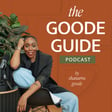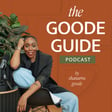
Repost Series: Navigating Corporate Leadership with Janis Hoyt
In this episode, Janis and Shannara will deep dive into corporate leadership with Jans Hoyt, Chief Human Resource Officer at Primal Pet Group. Janice shares her journey from retail to healthcare to consumer product goods (CPG), including her impactful role at The Honest Company. Discover the importance of diversity and inclusion (D&I) in corporate culture, especially during times of crisis like the pandemic and social upheaval. Learn how leaders can embrace vulnerability and authenticity to foster meaningful connections and drive positive change in the workplace.
00:00 - 04:37 Introduction
Introducing Jans Hoyt, Chief Human Resource Officer at Primal Pet Group.
Reflecting on the journey from retail to CPG and the pivotal role at The Honest Company.
Emphasizing the value of relationships forged during challenging times.
04:37 - 12:25 The Importance of Authentic Leadership
Exploring the significance of authenticity and vulnerability in leadership.
Navigating corporate spaces as women and women of color.
Overcoming challenges and embracing individuality in the workplace.
12:25 - 20:17 Evolution of Work Culture Amidst the Pandemic
Adapting to remote work dynamics and redefining the concept of the workplace.
Prioritizing safety and purpose in shaping the future of work.
Challenges and opportunities in managing diverse, multi-generational teams.
20:17 - 43:48 Fostering Inclusive Conversations
Addressing sensitive topics, including racial injustice and diversity.
Promoting open dialogue and active listening to support employees.
Embracing authenticity as a catalyst for positive organizational change.
Stay tuned for more insightful conversations on navigating the corporate landscape and fostering inclusive workplaces. Don't forget to subscribe and share your feedback with us!


